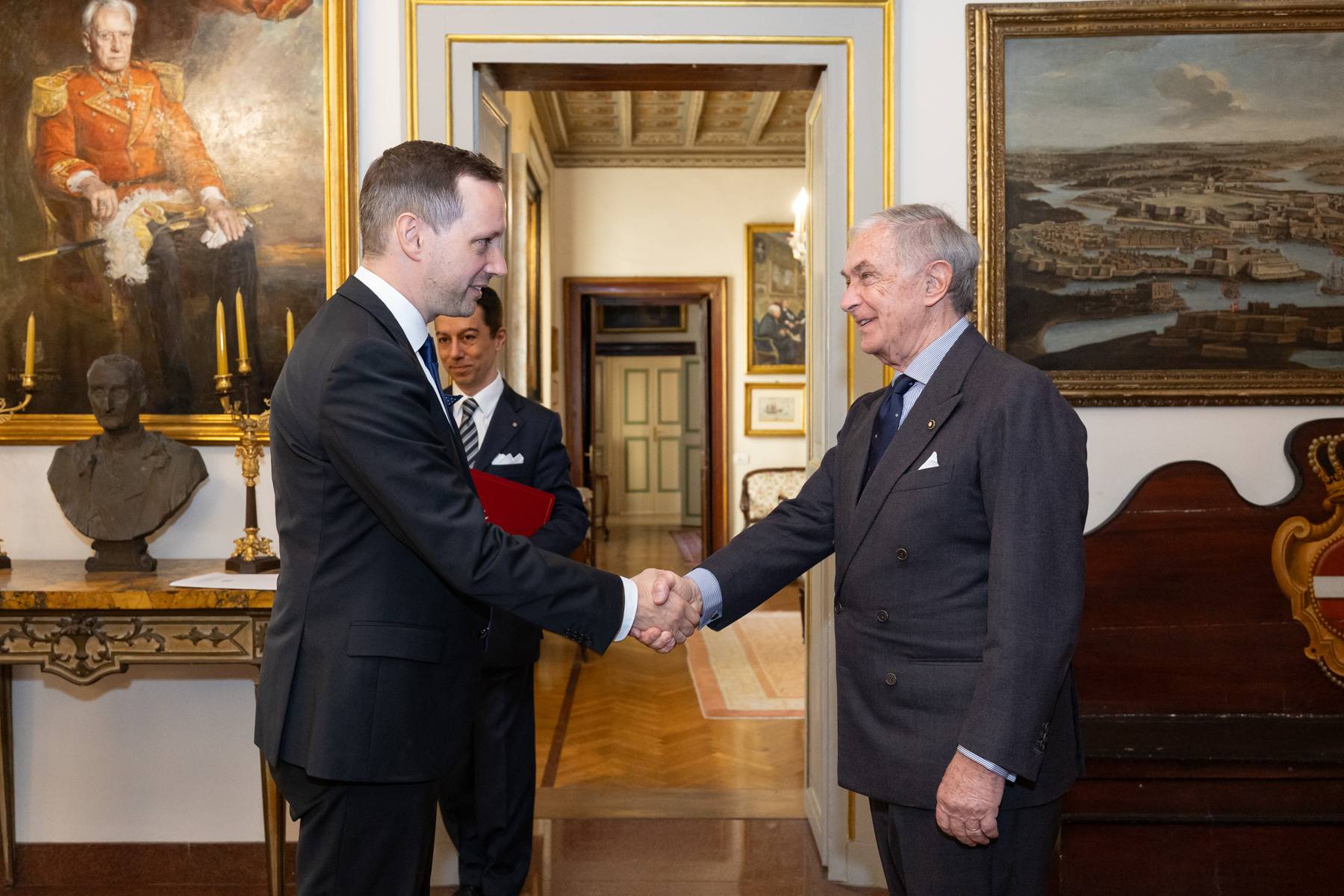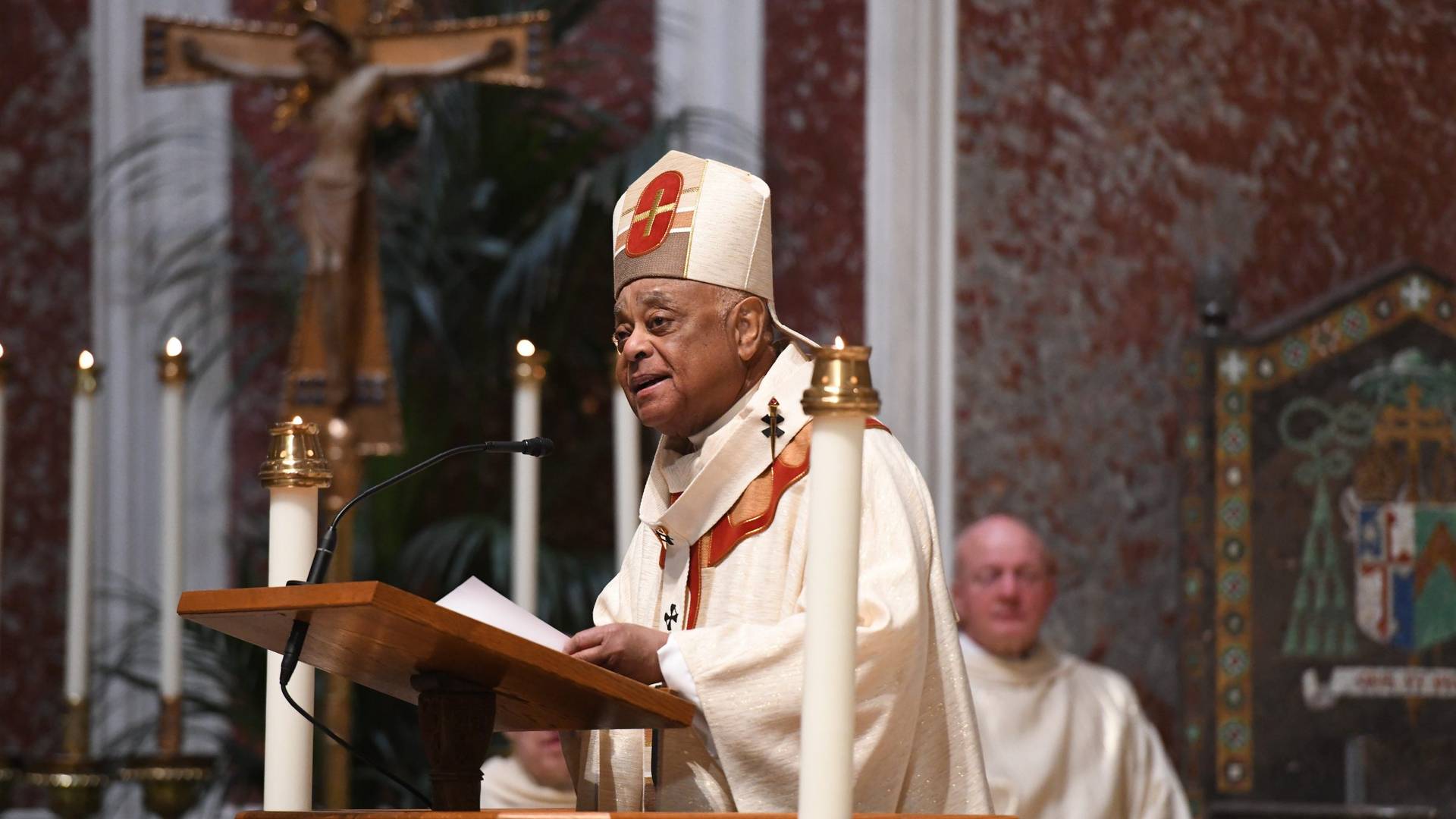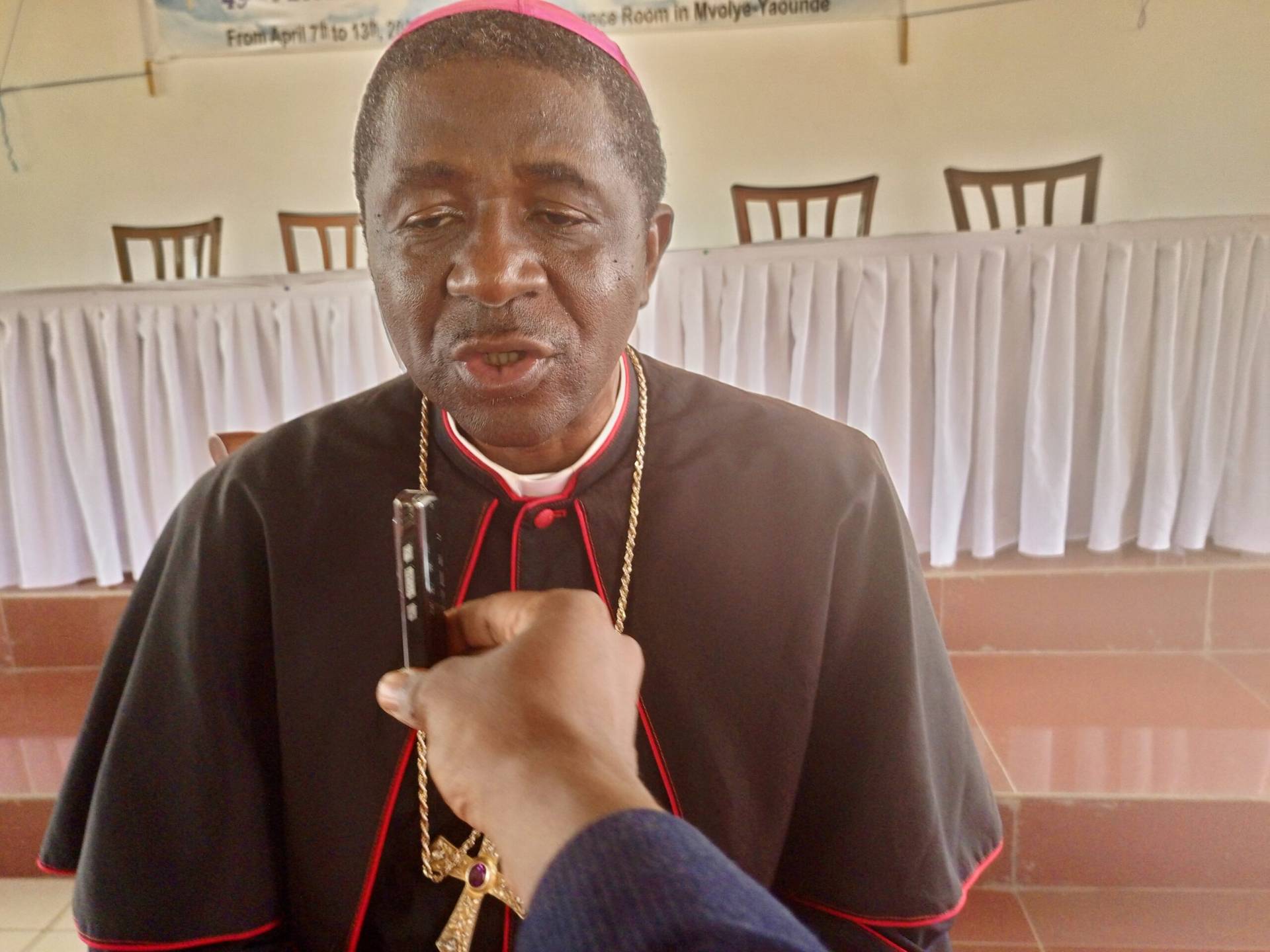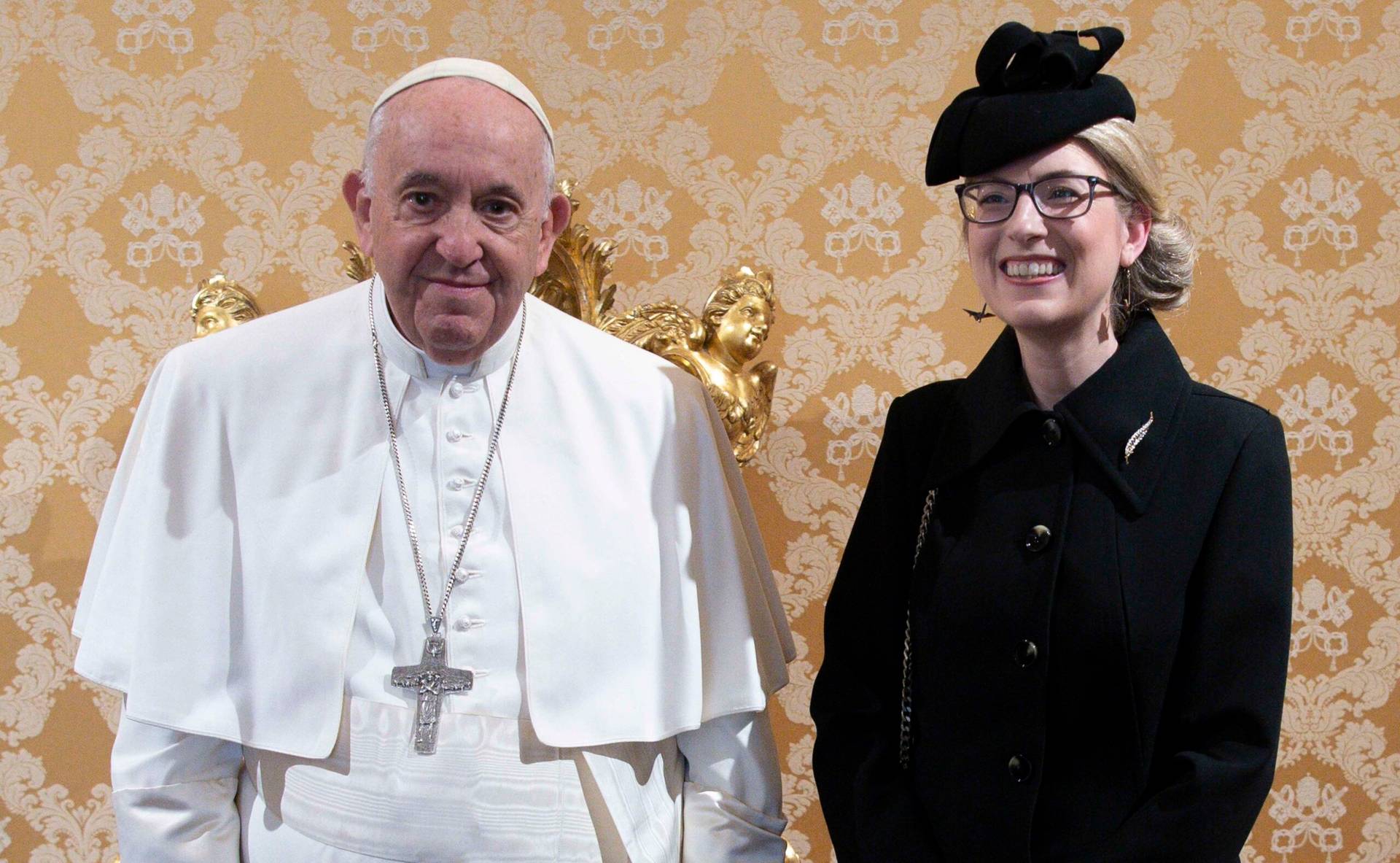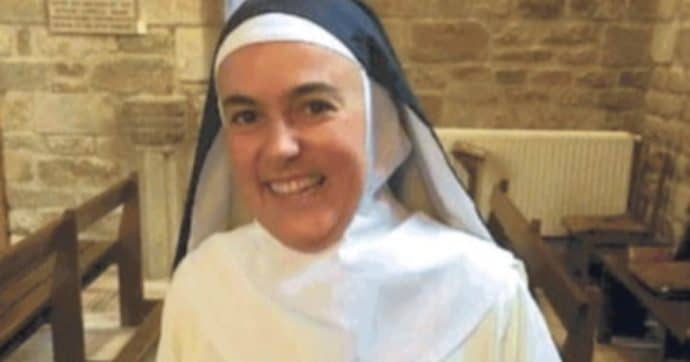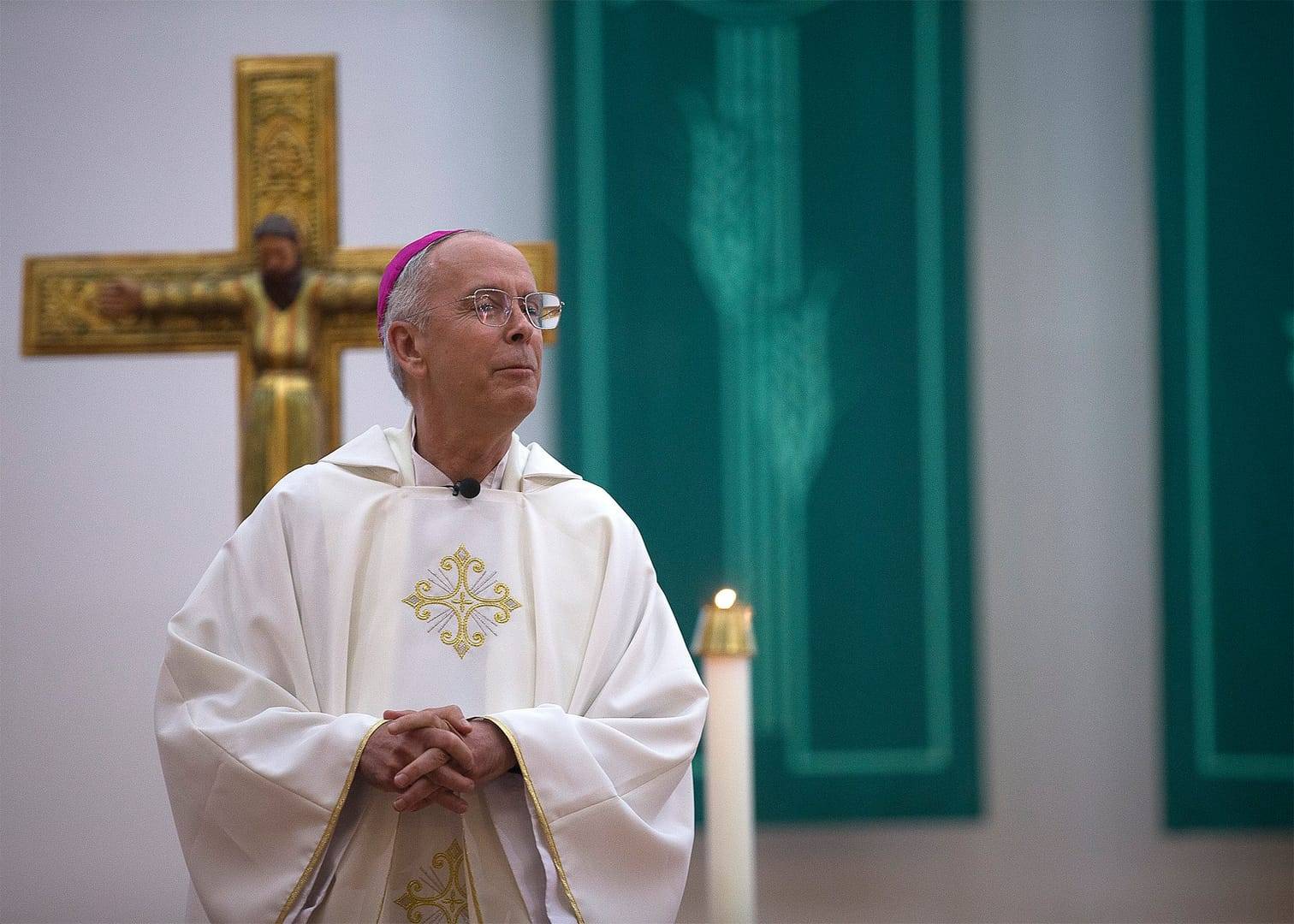Media types use the term “charismatic” to describe somebody who’s well-spoken and able to galvanize people around a cause, and Archbishop Charles Jason Gordon, newly minted as the shepherd of Port of Spain in Trinidad and Tobago, making him one of the field generals for Catholicism in the Caribbean, certainly has that kind of charisma in spades – presumably, it’s one of the reasons Pope Francis gave him the job on Oct. 19.
Yet Gordon is also “charismatic” in the more technical Christian sense, in that his spiritual formation largely unfolded within the Living Water Community, a charismatic movement founded by two women in Trinidad and Tobago in 1975. It’s now one of the largest and best-organized Catholic movements in the Caribbean, running a 24/7 TV station and a variety of social ministries, along with large numbers taking part in its liturgies and other spiritual programs.
It may be that charismatic background that fires Gordon’s ambition to take on a culture of crime and corruption in the Caribbean that he describes as a “lethal cocktail” eating away at the very “heart and soul” of the region.
How? Gordon has a one-word answer: “Conversion.”
“We don’t have a police force, we don’t have an army, we don’t have investigators. All we have is the Gospel of Jesus Christ. We have to ask people, looking them straight between their eyes, ‘Please, give your heart back to Jesus Christ,’” he told Crux.
“If we give our heart to Christ, ask him to show us mercy, and to ‘mercy’ us into being the people God has called us to be, then, like Zacchaeus, we’ll come down off our tree,” he said. “We wouldn’t feel our inferiority, we’ll be standing on solid ground and Christ will be in our house that day.”
“That’s a foundation for human living,” Gordon said, “and for building a community, a family and a civilization that’s second to none.”

In Gordon’s view, the Caribbean today is caught between two forces: A spreading climate of corruption in politics, in which power is essentially for sale; and a metastasizing crime wave, driven largely by the drug trade. Together, he said, they’re eroding the fabric of societies in the region.
How bad are things? Well, consider that I was in Trinidad and Tobago over the weekend to give a talk at a symposium put on by Catholic Media Services in Port of Spain, the national capital. The young priest driving me around seemed a well-informed guy, so I asked about the situation with corruption.
He told that while he was waiting for me to get into the car, he’d taken a call from a young Catholic cop he knows, somebody with solid moral values, who witnessed a situation of corruption and reported it. The young cop had just been informed that a wiretap the previous evening had caught drug runners saying they’d put his name on a hit list among three fellow police officers they pay off to do their dirty work, so he’s now marked for death.
Perhaps those officers will be arrested and indicted, and the young cop will be safe, or perhaps not. The point is, according to my priest friend, in his society, if you want to stand up against corruption, you need to understand you’re putting your life at risk.
That, in effect, is the task the 58-year-old Gordon wants the Church he leads to take on – forming people, perhaps drawing on his charismatic background, with the moral and spiritual foundations to run those risks.
Only time will tell how effective Gordon will be at getting that done. Locals say there’s some suspicion about the new archbishop on the basis of his ties to Living Water, which is seen by some here as already having too much influence within the local church.
There’s also the baggage of an abuse charge leveled at Gordon by an ex-altar boy (physical abuse in this case, not sexual), in his former diocese of Barbados. Gordon was forced to pay a $3,000 bail last May, though shortly thereafter the alleged victim dropped the charge and said he didn’t want to pursue it further.
Despite the obstacles, Gordon says he’s determined to press ahead. I spoke to him during a break in the symposium yesterday; the following are excerpts from that conversation.
Crux: What are the pastoral realities for the life of the Church in the Caribbean?
Gordon: One feature is that each island is so different, yet there’s this commonality we share which comes from the common history of slavery and the plantation system. That kind of gives a common thread for who we are. At the same time, not even our colonizers really unite us, because they’re all different. The British islands are different from the French islands, which are both different from some of the larger islands that were colonized by the Spanish, so we have all of this diversity in the region.
In Trinidad and Tobago, which was a very Catholic part of the Caribbean, the Church has a very different ethos, a very different way of seeing itself, and a very different influence on society. There’s a very different Catholic culture here. Barbados, which was the most thoroughly British colony, is only 3.8 percent Catholic. Saint Vincent and the Grenadines is yet another case, because at the end of the British and French war, which was won by the British, all the Catholics actually were deported and there was a 25 to 30-year period in which there was no Catholic Church presence in Saint Vincent and the Grenadines, and they had to rebuild from nothing. It’s still a very small church, just 7.5 percent of the population.
You’re describing the places you just came from, since prior to the appointment in Port of Spain you were the bishop of both Barbados and Saint Vincent and the Grenadines. Those were completely separate assignments – two chanceries, two vicars, two everything. Basically, you had two full-time jobs.
That’s correct. I did two months of administration every single month! I had two meetings with the priests in each diocese every month, I met the finance people in both places every month, I met with the curia in both places every month. Basically, everything a bishop would do in one diocese, I did in both every month.
How long did it take you to get back and forth?
When the plane actually takes off from the ground, it takes about 30 minutes, but the reality is that sometimes it takes about a half-day to get from one place to the next, by the time I would leave one residence and get to the other. Those planes are notoriously not on time! It made life fairly complicated.
But the real challenges we face in our region vary depending on where you are. If I take Barbados and St. Vincent, it’s not just that there isn’t a deep Catholic culture, but there’s actually a sentiment against the Catholic Church in those places, a distrust of the Church. Because of that, I found myself doing a lot more basic apologetics. There’s a Catholic-owned radio station in St. Vincent, and every month I was on for an hour or hour and a half. We would get questions for people, and I would just give a good reason for the Catholic faith.
Is that hostility tied to the colonial legacy?
Yes, it’s because these were largely Anglican countries. Anglicanism was the dominant religion, followed by Methodism. Catholicism was so small and so late coming into the country that the population generally didn’t trust Catholics. Later, the Pentecostal and Evangelical movements gained a lot of sway and built on that historic anti-Catholicism, so it’s a wonderful cocktail!
In Trinidad and Tobago, it’s very different. Catholicism has been the dominant religion here, but Hinduism is also a very large part of our population. Catholicism and Hinduism are actually very close in numbers in our country, but because of the historical references, Catholicism has had the dominant influence up until now. That’s fading quickly, however, as Trinidad becomes more secular and there are larger numbers of other groups, power shifts are happening.
What’s interesting, though, is that in the three islands, the dominant moral voice has been that of the Catholic Church, almost regardless of size. In Barbados, people told me that even if their Anglican bishop spoke on something, or the Methodist leader, the Catholic voice was the one they heard most clearly, that made most sense and had the greatest impact.
Why?
I think in part it’s because we have an incredible tradition of Catholic social teaching that we can rely upon. The Church has thought through more social problems, and had deep thinking on them, so a Catholic bishop doesn’t have to scratch his head and ask, ‘What am I doing? What am I going to say?’ We have the tradition.
Is it also because people know you’re part of something much bigger, even if your numbers may be small in Barbados or St. Vincent? There are 1.3 billion Catholics in the world, after all.
I kept making that point, saying I’m the national leader of a national church. I belong to a church that has 1.3 billion people all around the world, and we’re in every country of the world. We’ve been around since the Last Supper, or Pentecost … however you want to pin it, we’ve been around for a very long time. I would draw on that tradition, but also on Scripture, because in our countries if you don’t take it back to Scripture they can’t hear you.
In St. Vincent we had a very good Christian council, and the four heads [of the different Christian denominations] met regularly together. Very often the media would call on the Christian council, whichever of the four of us was leading it at that time.
In any event, the Catholic church in those places punches above its weight in terms of shaping the public conversation?
That’s the phrase used all the time in both of our dioceses. I’d say we actually had a greater role in shaping public discourse than the other churches, despite our size. It was the same thing in Barbados … the pastoral letters I would write, my messages for Christmas and for Independence, were fairly well received and spoke about as giving a moral compass to the country.
One interesting feature of your biography is that you have roots in the Catholic Charismatic movement, specifically a group called the Living Water Community. Did that originate here in the Caribbean?
Yes, it did, it originated in Trinidad and Tobago. It was founded by two women, one who’d been a contemplative nun for 16 years and the other a businesswoman who had an experience of God. They came together … someone brought the businesswoman, Rhonda Maingot, to the contemplative nun, Sister Assunta, who’s now Rose Jackman, and they started to pray together for a period of time. Rose had been feeling a call to leave the contemplative life, to bring the fruits of contemplative life to the world.
What period of time was this?
It was 1975, during the Holy Year that year. The two came together, started living together and having a prayer meeting every week, and little by little that evolved. By 1980, it had evolved into a household, a center for ministries, and a place for feeding people on the streets.
Today, you might consider it sort of a schizoid existence, but the community is both deeply contemplative and also deeply active, it’s both pastoral and social. It has this hybridity, which is actually one of the key underlying structures of the Caribbean psyche. For instance, it’s charismatic, but it’s also quiet in its prayer. The social tradition is also very important … right now, the Living Water Community has a hospice for those dying of cancer, a hospice for those dying of AIDS, a drug rehabilitation center, a center for feeding people living on the streets, a home for boys who would be living on the streets, a home for battered and abused children and women, a home for the aged, and a drug rehab center specifically for women.
It also has a television ministry that runs a 24/7 television channel in Trinidad and Tobago, that reaches Barbados, St. Vincent, Grenada, and many of the other islands. It manages to hold all this together.
Experts on global religion often say that charismatic Christianity may be a niche or a ghetto in the north of the world, but in the south it’s the mainstream because overwhelming majorities of Christians engage in what we would consider charismatic practices and hold charismatic beliefs. Is that your experience?
It is, pretty much. More people in the pews would identify themselves with this form of religion than not, and most people would have had some experience of the charismatic renewal at some point in their life. Even most of the priests would have had some experience, at some stage in their life. It has a very wide reach and has touched many people, even if they’re no longer formally part of a group or movement. It’s in their psyche, and their understanding of religion.
Have you had to navigate any tensions since your appointment about whether your loyalty as the Archbishop will be to this group, or to the whole archdiocese?
I see you read the Catholic News! [The newspaper of the Archdiocese of Port of Spain.] That was the first question the reporter asked me. He asked, ‘People are saying you’re a Living Water archbishop. What does that mean?’
Actually, I didn’t read anything in advance, I just know how this stuff plays out in other parts of the world. What did you say?
I said, ‘You know, we’ve had a Dominican archbishop, and the Dominicans didn’t run the church. We had a Spiritan archbishop, and they didn’t run the church. Now that we have a Living Water archbishop, it doesn’t mean they will be running the church.’
We always have this perception that a group which is new is threatening, because we just don’t know. At the same time, the community has a fairly wide outreach in the society and has a lot of respect within Trinidad and Tobago. Yes, it’s unusual that a group this young would produce an archbishop, etc., but this is my path, these are my roots, this is my foundation and it’s also my spiritual family. A lot of who I am has been formed from this experience of being both contemplative and active, of being both charismatic and social.
In principle, there’s nothing unusual about this. In other parts of the world, we’ve seen bishops who come out of the charismatic renewal or any number of other new movements, such as Sant’Egidio, Communion and Liberation, Focolare, the Neocatechumenate, and so on. In a sense, you’re the one who’s putting a face on this whole galaxy of new ecclesiastical life for the people there.
Correct, that’s it. John Paul II talked about the new ecclesiastical movements all the time, and their role in the new evangelization. Pope Benedict and Pope Francis did the same … the last three popes have really seen this as a new phenomenon that’s important for the life of the church, that brings to the church a new energy, new freshness, new sense of mission. In that sense, the Living Water Community is part of the phenomenon of the new ecclesiastical movements within the global Church.
When you were introduced as the new Archbishop of Port of Spain, you were asked what your priorities are going to be. You said fostering a spirit of missionary discipleship, which will allow the Church to take on the problems of crime and corruption. Why did you flag that as most important?
Crime and corruption is the challenge in the Caribbean right now, no matter where you go. If you take Barbados, one of the big considerations there is the accusation that in the last election there was vote-buying. That’s one of the ways of corrupting democracy, but it’s not just democracy, it’s corrupting the citizen. It’s selling what is a God-given right … it’s behavior that’s abhorrent, but it’s becoming normal right through our region.
We’ve accepted a form of political economy where corruption is normal. If you want to get ahead, you do corrupt things. When that becomes normal, it grows in business, in politics, in everything, and we have a serious problem. The soul of your nation is becoming corrupted.
Your soul is for sale?
That’s right, everybody is for sale.
In Trinidad there’s another problem, because the drug trade through here is huge. The trade generates more money than its leaders don’t know what to do with than anything that’s actually legal. So, paying out money to somebody to shut them up, or to get what you want, is really a simple task. It’s empowered a corrupt people. Put these things together, and you have a lethal cocktail.
The crime problem in Trinidad, I’m convinced, is a drug problem. I’m also convinced that it can’t be dealt with right now because we don’t have the courage to face the fact that our officials are allowing things to happen, or turning a blind eye, or doing things they ought not to be doing. That’s why we can’t stop crime in our country. For 20 years, 30 years, 40 years now, we’ve allowed corruption to seep into the very heart and soul of our population. It’s now an endemic problem that’s hitting all levels of our society.
What’s the role for the Church in confronting it?
Conversion! We don’t have a police force, we don’t have an army, we don’t have investigators. All we have is the Gospel of Jesus Christ. We have to ask people, looking them straight between their eyes, ‘Please, give your heart back to Jesus Christ.’
If we give our heart to Christ, ask him to show us mercy, and to ‘mercy’ us into being the people God has called us to be, then, like Zacchaeus, we’ll come down off our tree. We wouldn’t feel our inferiority, we’ll be standing on solid ground and Christ will be in our house that day. That’s a foundation for human living, and for building a community, a family and a civilization that’s second to none.
Congratulations on the creative use of mercy as a verb …
But it is!
It’s a very Pope Francis touch …
It is, it is.







